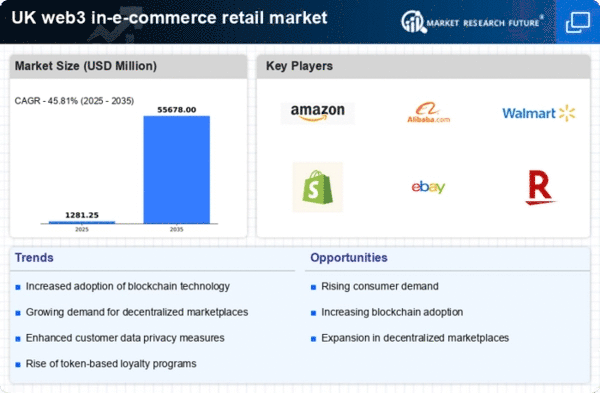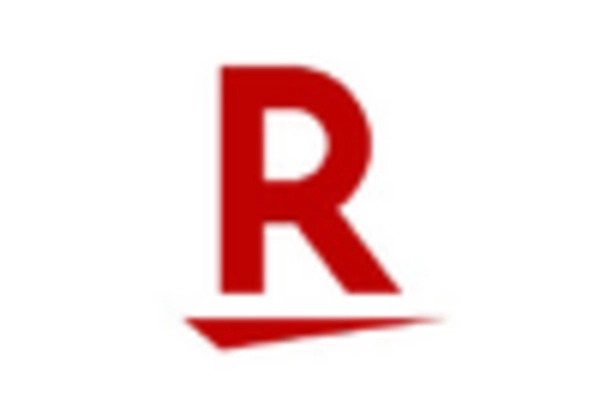Tokenization of Assets
Tokenization is becoming a pivotal driver in the web3 in-e-commerce-retail market, allowing physical and digital assets to be represented as tokens on a blockchain. This process enhances liquidity and accessibility, enabling consumers to invest in fractional ownership of high-value items. In the UK, the market for tokenized assets is projected to reach £1 billion by 2026, reflecting a growing interest in innovative investment opportunities. As retailers begin to adopt tokenization strategies, they may attract a broader customer base, thereby transforming traditional retail models and enhancing the overall consumer experience in the web3 in-e-commerce-retail market.
Adoption of Smart Contracts
The adoption of smart contracts is revolutionizing the web3 in-e-commerce-retail market by automating transactions and reducing the need for intermediaries. These self-executing contracts facilitate trust between parties, as they are coded to execute specific actions when predetermined conditions are met. In the UK, the use of smart contracts in e-commerce is expected to grow by 40% over the next three years, as businesses recognize the efficiency and security they offer. This technological advancement could streamline operations, reduce costs, and enhance the overall customer experience in the web3 in-e-commerce-retail market.
Growth of Community-Driven Brands
Community-driven brands are gaining traction within the web3 in-e-commerce-retail market, as consumers increasingly seek authentic connections with the brands they support. This trend is particularly pronounced in the UK, where 60% of consumers report a preference for brands that engage with their communities. By leveraging social media and blockchain technology, brands can foster deeper relationships with their customers, encouraging loyalty and repeat purchases. This shift towards community engagement may lead to a more collaborative retail environment, where consumer feedback directly influences product development and marketing strategies in the web3 in-e-commerce-retail market.
Enhanced Supply Chain Transparency
Supply chain transparency is increasingly vital in the web3 in-e-commerce-retail market, driven by consumer demand for ethical sourcing and sustainability. Blockchain technology facilitates real-time tracking of products, ensuring that consumers can verify the origins and journey of their purchases. In the UK, approximately 70% of consumers express a preference for brands that demonstrate transparency in their supply chains. This trend not only builds trust but also encourages retailers to adopt more sustainable practices. As transparency becomes a standard expectation, the web3 in-e-commerce-retail market may witness a shift towards more responsible consumption patterns.
Rise of Decentralized Marketplaces
The emergence of decentralized marketplaces is reshaping the web3 in-e-commerce-retail market. These platforms enable peer-to-peer transactions without intermediaries, fostering a more direct relationship between buyers and sellers. In the UK, the adoption of decentralized marketplaces has surged, with a reported increase of 35% in user engagement over the past year. This shift not only enhances transaction efficiency but also reduces costs associated with traditional e-commerce platforms. As consumers become more aware of the benefits of decentralization, the demand for these marketplaces is likely to grow, potentially leading to a more competitive landscape in the web3 in-e-commerce-retail market.
















